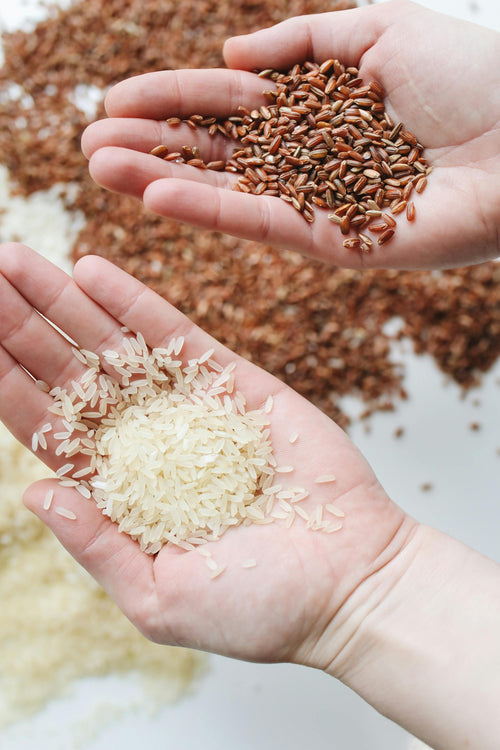What you must remember :
- Probiotics are the good bacteria that make up our intestinal microbiota.
- The balance of the intestinal microbiota allows the maintenance of good overall health with optimal functions.
- When we adopt an unbalanced lifestyle (diet, drug treatments, lack of physical activity, chronic stress), this causes a depletion of probiotics and therefore dysbiosis.
- It is important to favor suitable strains and to provide the body with sufficient probiotics as well as prebiotics (fiber in the diet) for a good balance of the intestinal microbiota.
- Prebiotics are essential to nourish probiotics and allow them to develop properly.
- Taking probiotics is recommended from birth and there are no contraindications to taking them.
Good bacteria called probiotics
Probiotics are the bacteria that make up the intestinal microbiota , also called intestinal flora. These are microorganisms capable of attaching to the intestinal wall and creating this famous flora in cohabitation with other microorganisms such as viruses, fungi and non-pathogenic parasites.
Probiotic strains
There are different strains of probiotics with various characteristics and each with its own effectiveness. Some will have a more targeted action on the regulation of intestinal transit while others will more easily regulate the immune system , the hormonal system or the intimate flora .
The main beneficial strains are called bifidobacteria or bifidobacterium and lactobacillus . To choose your probiotics, it is therefore essential to find this type of strain.
To preserve the benefits of these bacteria, it is important to use supplements based on gastro-resistant capsules. This will prevent the acidity of the stomach from altering these living organisms.
Health benefits of probiotics
Due to our current lifestyles, which are sometimes unbalanced, the proportion of good bacteria beneficial to the body can decrease and thus lead to an imbalance in the microbiota.
Probiotics will therefore help restore a good ratio, thus promoting an active microbiota. In fact, these probiotics will settle on the intestinal wall and thus colonize the intestine and the colon to provide a barrier function against pathogens, allow good assimilation of nutrients and promote the production of immune molecules.
Differences between probiotics and prebiotics
Prebiotics are the fibers that feed the good bacteria called probiotics and allow them to multiply. To optimize the benefits of a probiotic treatment, a supply of prebiotics is essential because these two types of products are complementary and act synergistically. These are called symbiotics . To do this, adopting a balanced diet rich in fiber (vegetables, fruits, whole grains, etc.) is essential to provide the fiber necessary for the proper functioning of your intestinal flora.
When and how to provide probiotics to the body
To provide probiotics to the body, different means can be used:
- Diet: the addition of probiotic-rich , fermented foods such as lacto-fermented vegetables, sourdough bread, yogurt, tofu, tempeh, kimchi and many others is recommended to support the balance of intestinal flora.
- Food supplements: it is sometimes complicated to ensure a sufficient intake of probiotics through food alone. This is why supplementation can be strongly recommended to achieve a deep and lasting balance.
It is recommended to carry out probiotic courses at each change of season, for prevention, following heavy treatment or taking antibiotics, in the context of a chronic inflammatory pathology.
Probiotic supplementation, for whom?
Taking probiotics in the form of food supplements can be done by everyone from birth. In fact, these are strains already present in our body. The quantities of these good bacteria may be insufficient within the intestinal microbiota of some people and cause digestive disorders and immune deficiencies. This is why taking probiotics is not contraindicated in anyone, however it is always recommended to seek advice from your doctor before starting any supplementation, especially in the event of any illness or particular treatment.
And what is the intestinal microbiota?
The intestinal microbiota is therefore all of these microorganisms which line the intestinal wall. There are many microbiota such as the oral one, the skin but also the vagina, however this is by far the most important in the body. It is responsible for many functions in the body and its balance called eubiosis allows us to maintain good health.
When this intestinal microbiota is unbalanced and pathogenic or less beneficial bacteria are in the majority, we say that a phenomenon of dysbiosis occurs . This can be due to lifestyle but also to intestinal porosity . Indeed, increased intestinal porosity can lead to intestinal hyperpermeability causing poor growth of probiotics and poor assimilation of nutrients.
What are the functions of the intestinal microbiota?
The functions of the intestinal microbiota are numerous because it regulates almost everything. Indeed, it is interconnected with other systems such as the nervous, hormonal, digestive , immune systems and regulates metabolism. Among the most important functions:
- Its ability to act as a protective barrier against pathogens. Indeed, the microbiota rests on this intestinal wall, responsible for the assimilation of nutrients and therefore their passage into the blood. This is why the microbiota protects the body against the entry of potential toxic molecules into the blood.
- Regulation of the immune system. In fact, the intestinal microbiota constitutes 80% of our immune system. it promotes the production of immune molecules and positively or negatively modulates the production of inflammatory molecules.
Sources :
[1] Bodke H, Jogdand S. Role of Probiotics in Human Health. Cureus. 2022 Nov 9;14(11):e31313. doi:10.7759/cureus.31313. PMID: 36514580; PMCID: PMC9733784.
[2] Khalesi S, Bellissimo N, Vandelanotte C, Williams S, Stanley D, Irwin C. A review of probiotic supplementation in healthy adults: helpful or hype? Eur J Clin Nutr. 2019 Jan;73(1):24-37. doi:10.1038/s41430-018-0135-9. Epub 2018 Mar 26. PMID: 29581563.
[3] Wang X, Zhang P, Zhang X. Probiotics Regulate Gut Microbiota: An Effective Method to Improve Immunity. Molecules. 2021 Oct 8;26(19):6076. doi:10.3390/molecules26196076. PMID: 34641619; PMCID: PMC8512487.
[4] Zhang XF, Guan XX, Tang YJ, Sun JF, Wang XK, Wang WD, Fan JM. Clinical effects and gut microbiota changes of using probiotics, prebiotics or synbiotics in inflammatory bowel disease: a systematic review and meta-analysis. Eur J Nutr. 2021 Aug;60(5):2855-2875. doi:10.1007/s00394-021-02503-5. Epub 2021 Feb 8. Erratum in: Eur J Nutr. 2021 May 24;: PMID: 33555375.
[4] Wierzbicka A, Mańkowska-Wierzbicka D, Mardas M, Stelmach-Mardas M. Role of Probiotics in Modulating Human Gut Microbiota Populations and Activities in Patients with Colorectal Cancer-A Systematic Review of Clinical Trials. Nutrients. 2021 Apr 1;13(4):1160. doi:10.3390/nu13041160. PMID: 33915854; PMCID: PMC8066620.




















